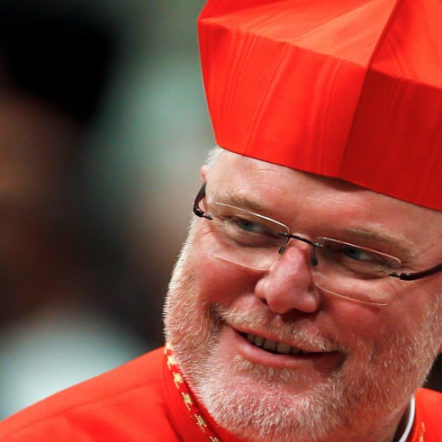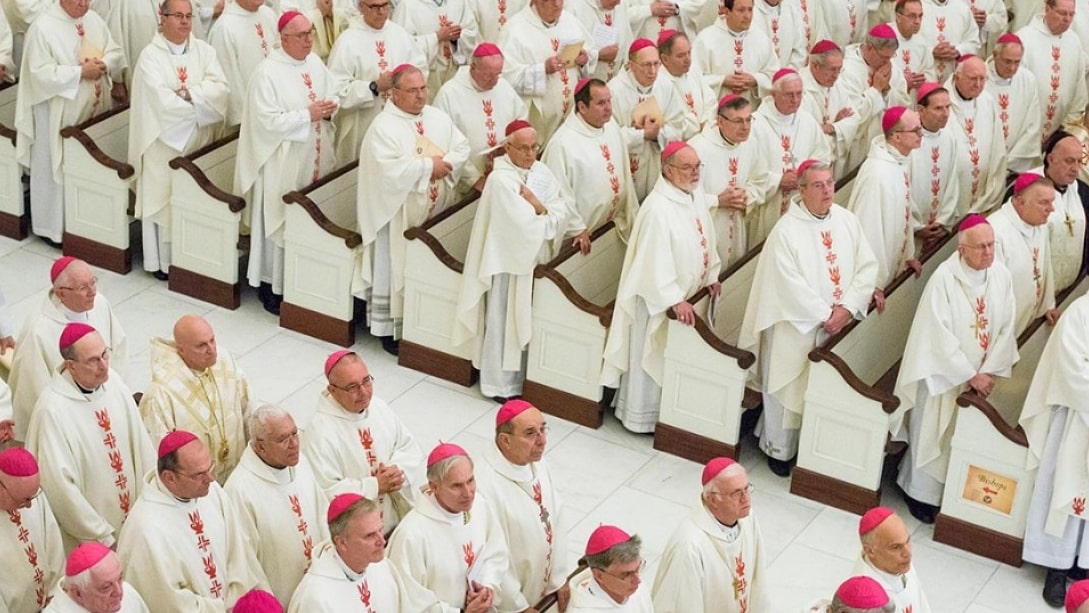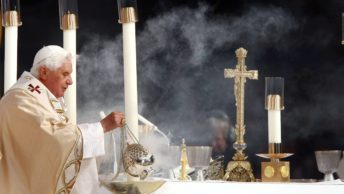In the past, Munich’s Cardinal Reinhard Marx has given his blessing to same-sex couples. Now he is going a step beyond that and publicly advocating that the Catholic Church change its teaching on homosexuality. Doing so, in his view, would be “taking the Church forward” and making it more “inclusive.” He goes on to say:
“The catechism is not set in stone. One may question what it says . . . Homosexuality is not a sin. It corresponds to a Christian attitude when two people, regardless of gender, stand up for each other, in joy and sorrow . . . [Love is shown] in not making the other person an object [or ‘using’ or ‘humiliating’ the person . . . LGBTQ+ people are part of creation and loved by God, and we are called upon to stand against discrimination . . . Those who threaten homosexuals and anyone else with hell have understood nothing.”
The Cardinal expressed similar views six years ago in a Vatican Synod of bishops when he said, referring to homosexuals, “People live in an intimate loving relationship that also has a sexual form of expression. And we want to say that this is not worth anything?” The question of course was rhetorical, his point being that homosexual sexuality is worth as much as heterosexual.
Few in the Catholic hierarchy have been so bold in urging a change in Catholic teaching on homosexuality, so the Cardinal deserves credit for his honesty. Most of his peers, including some residing in Rome, either avoid speaking of the issue or craft their statements to retain plausible deniability. (The fact that so many of them remained silent about what one famous priest called the “Lavender Mafia” in seminaries suggests at least tacit approval of homosexual behavior.)
In any case, the Cardinal’s candor in speaking doesn’t validate what he says, which is simply unsupportable. Perhaps that is why he didn’t try to support it. A responsible argument would have examined the traditional Catholic teaching and then demonstrated where it is flawed. Here is that teaching from the Catholic Catechism:
“Basing itself on Sacred Scripture, which presents homosexual acts as acts of grave depravity, tradition has always declared that ‘homosexual acts are intrinsically disordered.’ They are contrary to the natural law. They close the sexual act to the gift of life. They do not proceed from a genuine affective and sexual complementarity. Under no circumstances can they be approved.” (Catechism 2357, emphasis added)
In order to make a valid argument against this Catholic teaching, the Cardinal would have had to demonstrate that homosexual acts are consistent with the natural order and open to the creation of life. But this cannot be done, even by more gifted thinkers—first because the organs involved in homosexual acts are, to say it gracefully, physically uncomplementary. (Complementarity can of course be forced but that is hardly the same.) Secondly, because homosexual acts cannot result in pregnancy.
No doubt the Cardinal recognized that he couldn’t present a rational argument for his position, so he chose an irrational one: He says the Catechism is not set in stone (in other words, unchangeable). True enough, but a good reason is needed to change it; he has not even tried to give one. He says Homosexuality is not a sin. Unfortunately, merely stating that something is so doesn’t make it so. He says LGBTQ+ people are part of creation and loved by God. Well, of course they are, but that in itself doesn’t validate their actions. God loves all of us, but He still gave us Commandments and expects us to honor them. Finally, the Cardinal says “we are called upon to stand against discrimination . . . [and] those who threaten homosexuals and anyone else with hell have understood nothing.”
Notice that in the last statement the Cardinal shifts the subject from whether homosexual behavior is morally acceptable to whether homosexuals should be treated unfairly, an entirely different subject! He is obviously suggesting that anyone who believes homosexual behavior is “disordered”—as Catholicism has always taught—hates homosexuals and wishes them ill. Shifting the subject is a common rhetorical tactic these days and it is as dishonest when used by a Cardinal as by anyone else. It is nothing short of inexcusable for someone of his rank not to know that Christians, as well as practitioners of many other religions, have found it both possible and laudable to “hate the sin but love the sinner.”
But wait a moment. Would the Cardinal’s argument have been strengthened by saying Psychiatry has found good reason to change its view of homosexual behavior, so the Church should “follow the science”? No. Psychiatry has indeed changed its view but not for a valid reason. Here’s why:
Until 1973 the American Psychiatric Association (APA) was essentially in agreement with the Catholic Catechism, classifying homosexuality as a “mental disorder.” Then it changed its classification to “normal,” not for scientific reasons but because of gay activists’ badgering, intimidation, and threats. APA members were not asked to decide whether change was called for (a fair question); they were instead “directed” to vote in favor of normalizing homosexuality. Years later, in 1977, in a broader and more objective survey of 2,500 individual psychiatrists, 69% classified homosexuality a “pathology.” It is therefore appropriate to say that Psychiatry’s Diagnostic and Statistical Manual is not a reliable source on the question.
To summarize, in this case Cardinal Marx is left with an impressive platform from which to express his view of what should be changed in Church teaching, but without an argument worthy of that platform. Worse, however, than his intellectual failing itself is the likelihood that many Catholics, including other prelates, will be led astray by it.
Copyright © 2022 by Vincent Ryan Ruggiero. All rights reserved








